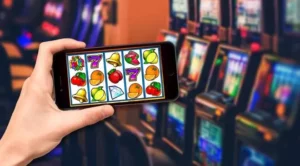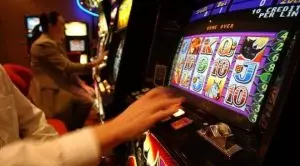 Australia’s Federal Government is set to impose an R18+ rating on all video games that feature simulated gambling, with the move being part of an effort that seeks to restrict children’s access to popular casino-style games. The Government will also seek to bring some changes to the classification rules to require all games featuring so-called loot boxes that allow players to purchase a package with a random in-game item inside, as it is willing to impose at least a “mature” M-rating on the controversial items.
Australia’s Federal Government is set to impose an R18+ rating on all video games that feature simulated gambling, with the move being part of an effort that seeks to restrict children’s access to popular casino-style games. The Government will also seek to bring some changes to the classification rules to require all games featuring so-called loot boxes that allow players to purchase a package with a random in-game item inside, as it is willing to impose at least a “mature” M-rating on the controversial items.
The aforementioned move is set to affect some of the most successful games on a global scale, including the popular series of FIFA soccer games.
As previously reported by Casino Guardian, the last few years have seen an increasing concern over the extremely easy access underage individuals have to games featuring some gambling elements. As a result, some game developers have already chosen to eliminate loot boxes from their games, including the manufacturer of Fortnite, one of the iconic releases among gamers from all over the world.
According to reports, researchers have found that children who pay and spend real money in simulated gaming games are more susceptible to developing a gambling disorder than children who do not play such games.
International Gambling Giants Currently Dominate the Global Social Casino Industry
 As revealed by Communications Minister Michelle Rowland, the proposals – that will require the agreement of Australian states and territories to proceed – are specially designed to address some ongoing concerns associated with these games’ potential to encourage players to start gambling. She noted that the growing community concern around the scale of simulated gambling harm has been one of the main reasons why the Federal Government has taken action to tackle the practice and protect children from possible risks and harm.
As revealed by Communications Minister Michelle Rowland, the proposals – that will require the agreement of Australian states and territories to proceed – are specially designed to address some ongoing concerns associated with these games’ potential to encourage players to start gambling. She noted that the growing community concern around the scale of simulated gambling harm has been one of the main reasons why the Federal Government has taken action to tackle the practice and protect children from possible risks and harm.
The proposed changes, however, may mean that underage individuals will not be allowed to purchase games that feature simulated gambling in a less prominent way, including as a narrative element of a broader game. Ms Rowland confirmed that games featuring simulated gambling would be subject to a particular rating, as the Government wants to give a clear indication to both the industry and consumers.
Currently, the global “social casino” sector, which is worth billions of dollars, is dominated by some of the largest companies in the gambling industry. Many of the games available in the sector replicate the experience of a poker machine and even provide players with the chance to purchase more virtual coins but without them paying out real money, which means they do not fall under the legal definition of gambling services, hence are not regulated as video games.
According to experts, the number of people, who seek professional help for dealing with their gambling habits developed after playing simulated gambling games, has increased. They have warned that a lot of people migrate to social casino games and then to more serious forms of gambling, with their spending on the service rising over time, and that amount of money could be a huge sum, especially for people who already face some financial difficulties.
Pokie Players Often Play Social Casino Games, Too, Research Says
 Research has found that the players who play so-called poker machines, also known as pokies, and social casinos, are demographically similar.
Research has found that the players who play so-called poker machines, also known as pokies, and social casinos, are demographically similar.
As Professor Sally Gainsbury from the University of Sydney confirmed, social casino games are among the game genres that have been available for the longest time on the market. She further noted that the average age of players of social casino games is over 45. The same applies to other forms of gambling, such as bingo, which usually targets older people. Professor Gainsbury also explained that there is often an overlap of people who engage in real-money gambling and play social casino games, with such people often being interested in gambling-themed games.
Of course, this does not necessarily mean that underage individuals are not playing such games, too, with some studies even suggesting that between 12% and 25% of Australian children have done so. These claims have been disputed by the industry, which in 2018 initiated and published research, according to which less than 0.25% of social casino games’ players are under the age of 18, and only 0.008% of players are both underage and spend money on social casino games.
The research held by Professor Gainsbury and her associates, however, shows otherwise. According to the results of the research, young people are also playing social casino games, and they can easily do so on various social media platforms by simply changing their actual age to gain access. The lack of efficient age verification makes that possible, so adolescents are much more likely to list their ages higher than it actually is, which is why they manage to get under the radar of various surveys and “official” data.
For the time being, however, it remains not quite clear whether playing social casino games boosts the likelihood of players developing a compulsive gambling habit in the future, or vice versa.
- Author


